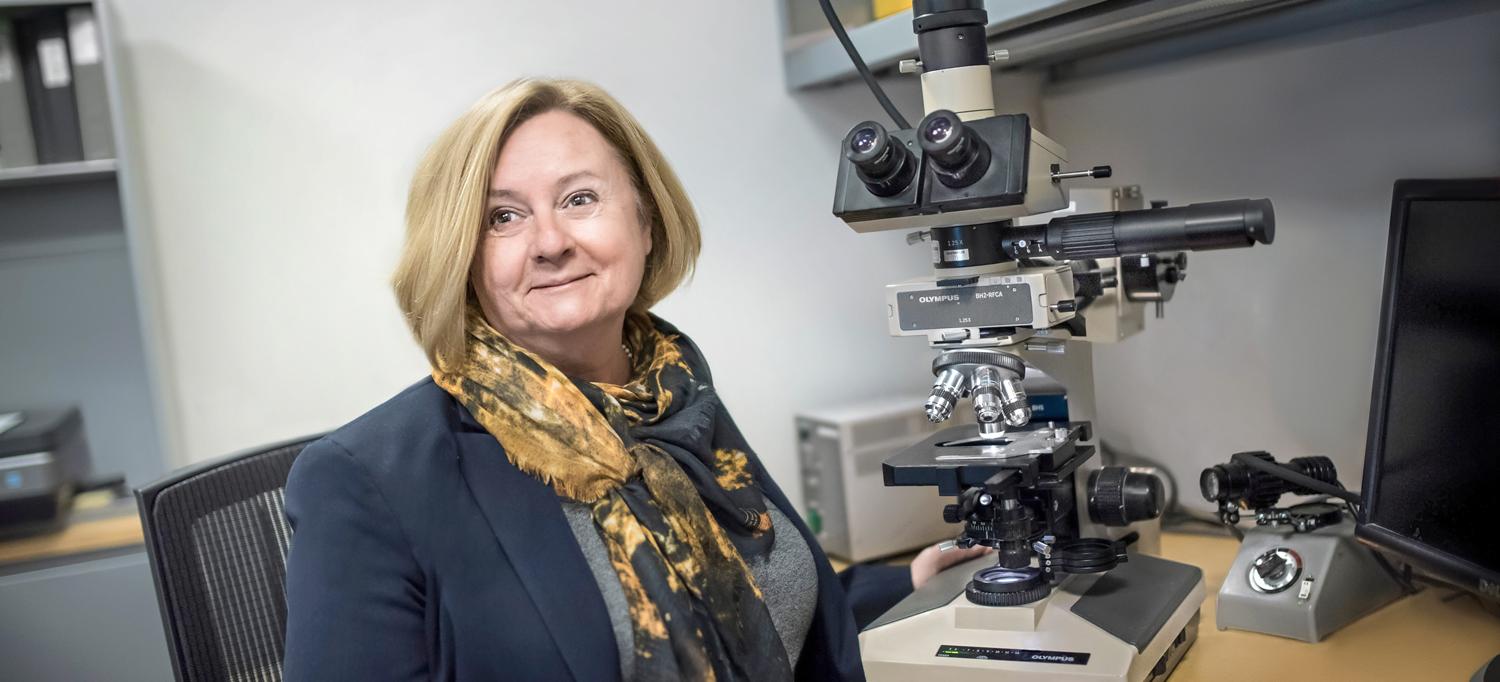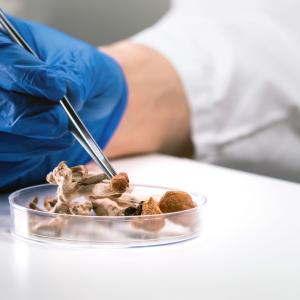
A new study led by NYU School of Medicine and Dr. Regina M. Sullivan shows the effects of an abusive mother–child relationship, especially during the pivotal first weeks of life.
Photo: John Karsten Moran
A new study in rats shows the extent of brain damage in newborn rodents from even short-term abuse by their mother.
Past studies in animals and humans have established how a mother’s abuse can lead to brain shrinkage in her infants’ amygdala and hippocampus, parts of the brain that process fear and memory, researchers say.
Led by researchers from NYU School of Medicine, the new study goes even further, say its authors, to pull apart the effects of abusive parenting from the related stress that follows it. Together, both can negatively impact the growth and development of the infant brain, researchers say.
The study shows how the stress from abuse was sufficient on its own to damage the hippocampus, while the pairing of stress with the presence of an abusive mother was required to restrict growth of the amygdala and to prompt her pups to unnaturally keep their distance and limit their time spent together.
“Our study further unravels the complexity of an abusive mother’s relationship to their child, especially during the pivotal first weeks of life when they are bonding,” says study senior investigator Regina M. Sullivan, PhD, a professor in the Department of Child and Adolescent Psychiatry at NYU Langone Health. “The results explain two key consequences of abusive parenting and how presence of the abusive parent can trigger related behavioral problems beyond just the stress it creates in the infant.”
Published in the Proceedings of the National Academy of Sciences (PNAS) online October 21, the study analyzed the social behaviors and brains of rat pups that had been exposed to a week of daily rough handling in their nest by their mothers. These results were then compared with those of rat pups that had been injected with just stress-inducing drugs when left alone with a nurturing mother, an anesthetized mother showing no maternal behavior, or a still object. The investigators induced the rough handling by withholding sufficient nesting materials new rodent mothers normally find in the wild, which is a common technique for recreating abusive behavior.
Among the study’s key findings, abused infants were hesitant to stay with the mother and nurse, and did so for shorter periods of time whether their mother was awake or not. These effects were replicated when researchers injected unabused, normal pups with the stress hormone corticosterone. Moreover, the negative impact from abuse could largely be blunted by chemically blocking corticosterone action in the infant brain and by exposing stressed pups to nonabusive mothers.
“Mothers and other close caregivers have special access to the infant brain, and consistent abuse, if left to continue, may do lasting damage,” says Dr. Sullivan. “But our findings also suggest that mothers or their surrogates have the innate ability to help mitigate the damage through good parenting,” Dr. Sullivan adds.
Study researchers caution that their research results need not worry caregivers who have caused stress in their baby a few times. Dr. Sullivan says the evidence suggests it takes more than a few isolated instances of stress to cause long-lasting damage to a child’s brain. Some level of stress hormones, she adds, are needed for healthy brain growth and development.
Moving forward, the researchers say they next plan to study specific effects of other hormones released by an infant rat during a stressful situation, designed to recreate living with insufficient resources for child rearing, such as housing, food insecurity, or lack of access to their mother.
Funding for the study was provided by National Institutes of Health grants F32 MH112232, T32 MH019524, and R37 HD083217, and a Brain & Behavior Research Foundation NARSAD Young Investigator Grant.
In addition to Dr. Sullivan, other NYU Langone researchers were Maya M. Opendak, PhD; Emma Sarro, PhD; Ashleigh Showler; Kevin Bui; and Donald A. Wilson, PhD. Other researchers were Charlis Raineki, PhD, at the University of British Columbia in Vancouver; and Bruce S. McEwen, PhD, at The Rockefeller University in New York.
Media Inquiries
David March
Phone: 212-404-3528
david.march@nyulangone.org

